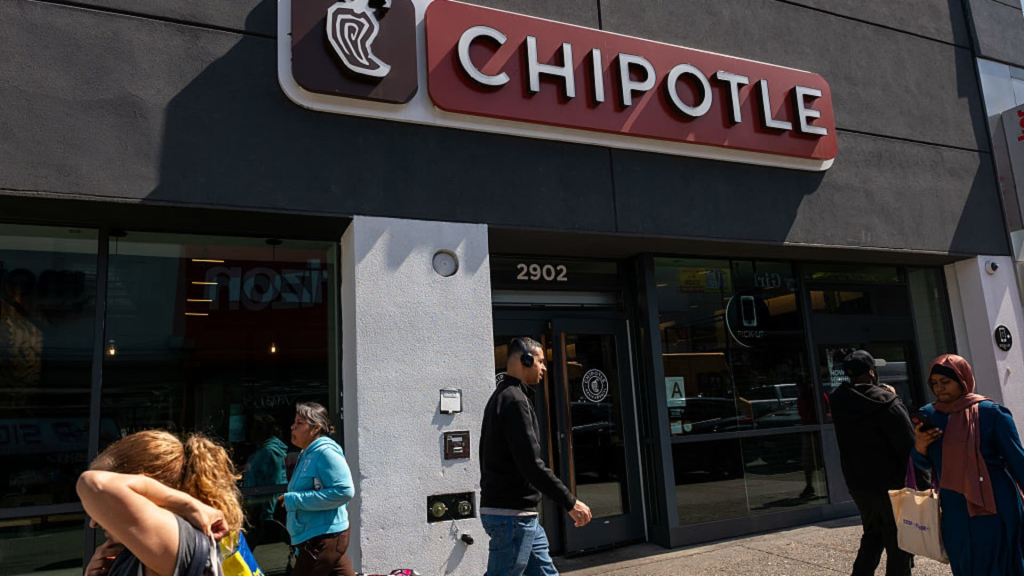Major consumer brands, including Procter & Gamble and Chipotle, are revising their earnings forecasts downward. The companies attribute this cautious outlook to tariffs, which they believe will negatively impact profits and exacerbate an already fragile consumer market.
At least twelve firms have adjusted or withdrawn their annual projections amid the ongoing earnings season, as more corporate reports are expected in the coming weeks.
Companies face increased costs for essential materials, such as avocados from Peru and saccharin for toothpaste due to tariffs. This not only erodes profit margins but also creates uncertainty that forces consumers to curb their spending habits.
The revised forecasts come during a temporary halt to increased tariffs under President Donald Trump’s reciprocal tariff initiative. Until early July, most imports will incur a 10% duty, while goods from China face significantly higher tariffs of 145%, along with additional duties on aluminum, automobiles, and other non-exempt items.
However, market dynamics are continuously shifting. Treasury Secretary Scott Bessent indicated during a private meeting with investors that he anticipates a “de-escalation” in the trade conflict with China in the “very near future.” Additionally, the White House announced that some automakers might receive exemptions from certain tariffs.
Price Hikes Amid Profit Declines
Currently enforced tariffs have made several goods, from coffee to aircraft, costlier to produce. Many company leaders are likely to increase prices to offset the impact on their profit margins.
“Aircraft are already too expensive. I don’t want to incur any more costs,” stated American Airlines CEO Robert Isom. He emphasized the necessity to adjust guidance, expressing that absorbing additional costs isn’t feasible, nor is it something customers would appreciate. “We need to find a solution,” he added.
Global tariffs, including those enacted in retaliation, are exerting significant pressure on the aerospace sector’s supply chain, according to Airbus Americas CEO Robin Hayes, who spoke at a Wings Club luncheon in New York. The U.S. aerospace industry, which enjoys a trade surplus, helps ease the nation’s overall trade deficit.
Demands are increasing among airline and aerospace manufacturers for reinstating an agreement that has allowed the industry to operate largely duty-free for over 45 years. Other sectors are also pushing for exclusions from tariffs.
Unless there are reductions in tariffs or new exceptions for specific goods, consumers can expect to see price increases across various sectors. Brands such as P&G, Keurig Dr Pepper, and Hasbro have indicated potential price hikes to mitigate rising costs in the near future.
“We anticipate price adjustments due to tariffs, which inherently create inflationary pressures. However, we’re also exploring sourcing alternatives,” commented P&G CEO Jon Moeller on Finance Newso’s “Squawk Box.”
While Keurig Dr Pepper acknowledged rising costs for its coffee and beverages, it maintained its full-year forecast thanks to strong first-quarter earnings, supported by the sale of its minority stake in Vita Coco.
A Consumer Landscape of Uncertainty
The effects of tariffs on grocery prices will take time to manifest on retail shelves, but their impact is already noticeable in consumer sentiment.
Earlier this month, U.S. consumer sentiment dropped to its second-lowest level since 1952, with consumers scaling back on spending due to fears of rising inflation, job losses, and a potential recession, as reported by companies this week.
“The primary factor is a more anxious consumer who is reducing spending in the short term, combined with the impact on cost structures and our ability to sustain earnings given lower growth rates,” explained P&G CFO Andre Schulten during a media call on Thursday regarding the company’s adjusted forecast.
P&G, which markets essential household brands like Charmin and Tide, lowered its projections for core earnings per share and revenue. The company’s third-quarter sales fell below Wall Street expectations.
“It’s logical for consumers to take a ‘wait and see’ approach, and we have indeed noticed reduced traffic at retailers,” Schulten noted.
PepsiCo echoed similar concerns, attributing its forecast cut for full-year core constant currency earnings per share to a “subdued” consumer atmosphere along with tariffs.
Consumer anxiety is also impacting Chipotle, which became the first major publicly traded restaurant to report its financial results. The chain adjusted its forecast for full-year same-store sales growth after noticing a traffic slowdown since February as diners expressed financial concerns. This trend has continued into April.
“Our visitation studies indicate that financial concerns are the primary reason consumers are dining out less frequently,” remarked Chipotle CEO Scott Boatwright during a recent analyst briefing.
Meanwhile, Hasbro reiterated its forecast, projecting a significant headwind of $100 million to $300 million from tariffs. The toy company considers the ramifications of China’s tariffs, which could fluctuate between 50% to the current 145% rate.
Executives also cautioned against potential job losses resulting from the increased costs. Similarly, airlines have begun to witness a downturn in demand, particularly in their economy class offerings. Delta Air Lines CEO Ed Bastian characterized Trump’s tariff policies as counterproductive, negatively affecting both economy-class demand and corporate travel due to ongoing market unpredictability.
American Airlines, alongside Southwest Airlines, Alaska Airlines, and Delta, all withdrew their 2025 financial guidance, citing an unpredictable U.S. economy. United Airlines took the rare step of providing dual outlooks in response to potential economic downturns but still anticipates profitability this year.
— Finance Newso’s Leslie Josephs contributed to this report


























